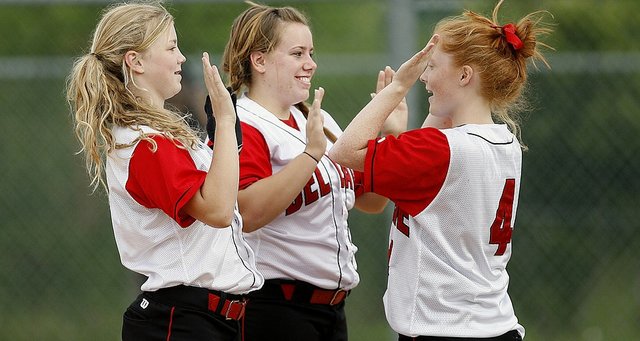Peer Pressure: How can we help our children?
Good day friends and welcome to my blog
Today, I want to discuss an important issue that has to do with Peer pressure. Everyone is aware the desire or a longing to be more like your friends is a normal part of being a teenager/ adolescent or a young adult. Peer influence or peer pressure isn’t always a bad thing, but sometimes it might be a concern for you, your child, your friend or your sibling.
Peer influence is when you choose to do something you wouldn’t otherwise do, because you want to feel accepted and valued by your friends. It isn’t just or always about doing something against your will, but the result of succumbing to pressure most times tend towards doing negative things or carrying out anti-social behaviour.
Picture source Public domain: Pixabay
You might hear the term ‘peer pressure’ used a lot. But peer influence is a better way to describe how teenager's or young adult's behaviour is shaped by the desire to feel they belong to a group of friends or peers. Peer pressure or influence can be positive. For example, you might be influenced to become more assertive, try new activities, or to get more involved with school.
But it can be negative too. Some teenagers or young adults might choose to try things they normally wouldn’t be interested in, such as smoking or taking part in antisocial behaviour.
Peer influence might result in people doing the following:
-choosing the same clothes, hairstyle or jewellery as their friends
-listening to the same music or watching the same TV shows as their friends
-changing the way they talk, or the words they use
-doing risky things or breaking rules
-working harder at school, or not working as hard
-dating or taking part in sexual activities
-smoking or using alcohol, drugs or other harmful substances.
Coping well with peer influence is about getting the balance right between being yourself and fitting in with your group. There are some things that determine if children or young adults are more likely to be negatively influenced by peers – for example, those who have poor self-esteem, who feel they have few friends, and who have special needs.
Low self esteem From Pixabay: Public domain
These persons might feel that the only way they’ll be included and accepted in social groups is by taking on the behaviour, attitudes and look of a group. Persons who have strong self-esteem are better at resisting negative peer influence. If you are happy with who you are and the choices you makes, you are less likely to be influenced by other people.
Self-esteem helps in establishing good relationships, and positive friendships also help self-esteem. You or your friend might do some things that your friends do, but not other things. You have an influence over your friends too, especially over the longer term. If you have a strong sense of yourself and your values, it’s more likely you will know where to draw the line when it comes to assessing risks.
Here are some ideas to help your friends manage peer pressure and peer influence:
Keep the lines of communication open. You can do this by staying connected to them. This can help make them feel more comfortable talking to you if they are feeling swayed to do something they are uncomfortable with.
Suggest ways to say no. Your friend might need to have some face-saving ways to say no if he’s feeling influenced to do something he doesn’t want to do. For example, friends might be encouraging him to try smoking. Rather than simply saying ‘No, thanks’, he could say something like, ‘No, it makes my asthma worse’, or ‘No, I don’t like the way it makes me smell’.
Give your friends a way out. If your friend feels she’s in a risky or tricky situation, it might help if she can text or phone you for back-up without worrying you’ll be cranky. If your friend is embarrassed about having to call you, you could agree on a coded message. For example, she could say that she’s checking on a sick grandparent, but you’ll know that it really means she needs a hand.
Picture source from Pixabay: Public domain
Encourage a wide social network. If your friend has the chance to develop friendships from many sources, including sport, family activities or clubs, it will mean he’s got lots of other options and sources of support if a friendship goes wrong or is demanding the carrying out of an action you are not comfortable with.
Build up yourself and your friend’s sense of self-esteem. This can help her feel more confident to make her own decisions and push back on peer influence. When you’re worried about peer pressure and peer influence
Encouraging your friends to have friends over and giving them space in your house can help you get to know their friends. This also gives you the chance to check on whether negative peer influence is an issue for your friend.
If you’re worried some friends of your friends are a negative influence, being critical of them might push them into seeing them behind your back. If your friend thinks you don’t approve of her friends, she might even want to see more of them.
So instead of focusing on any people you don’t like, you can try talking to your friend about the behaviour you don’t like. Discuss the possible consequences of the behaviour, rather than making judgments about your friend’s friends.
Warning signs of peer pressure you can notice include:
-low moods, tearfulness or feelings of hopelessness
-aggression or antisocial behaviour that’s not usual for your friend
-sudden changes in behaviour, often for no obvious reason
-trouble falling asleep, staying asleep or waking early
-loss of appetite or over-eating
-reluctance to go for normal academic activities, like lectures, tutorials and group discussions.
-withdrawal from activities your friend used to like
-statements about wanting to give up, or life not being worth living.
Child aggression from Pixabay: Public domain
If you notice this in your friend, colleague, sibling or family member, it is time to take action and help combat it. Resisting peer pressure is easier when we can watch out for each other.



